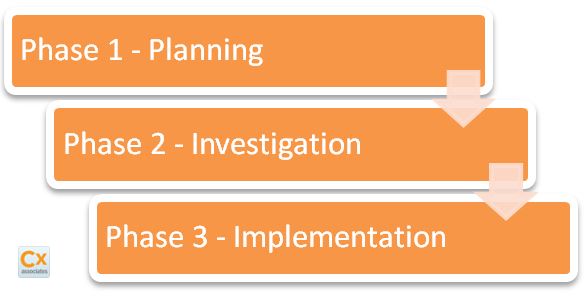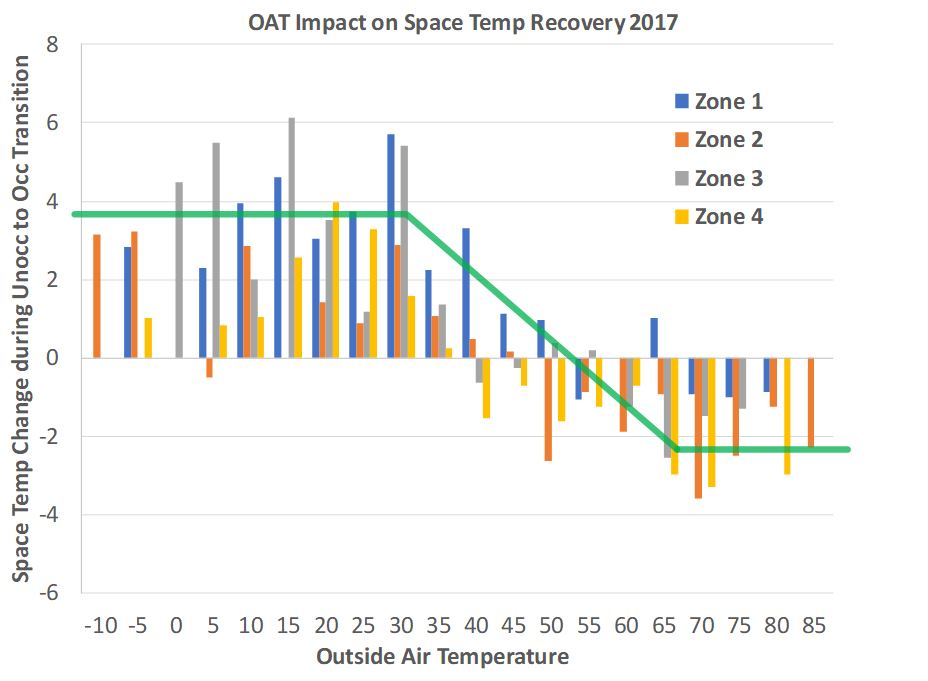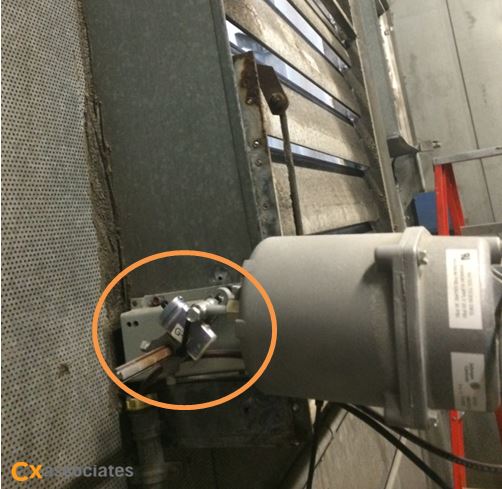As someone very new to the engineering world, I’ve learned a lot in the last few months about the impact that engineers can have on climate change. I came to Cx Associates and the world of commissioning in a rather round-about way. My background is in molecular genetics, specifically lung cancer research, but when I moved to Burlington this past summer, I decided to pivot in my career path. I’d found myself desiring more and more to move into a field that was doing some good for the world. I know, I know, many would say “Hey! Cancer research is good for the world!,” and I certainly don’t deny that, but what good is finding new cancer treatments if there isn’t a planet that can viably support the patients those treatments would be for? As I’m sure many of you heard or read in the news some months ago, the Intergovernmental Panel on Climate Change (IPCC)’s 2018 Climate Report showed that “global warming is likely to reach 1.5°C between 2030 and 2052 if it continues to increase at the current rate” (something some climate scientists have argued is a conservative estimate). This will have devastating effects on people’s lives, and not only in poorer nations of the world – the Fourth National Climate Assessment released by the U.S. Global Change Research Program in November 2018 predicts U.S. economic losses due to climate change in 2090 as $280-$500 billion/year. These reports cemented my feelings in the weeks and months after I began at CxA, but I had already felt myself pulled towards the idea of working for a company or organization that was doing solid, on the ground work to combat climate change. I did not expect that pull to land me at a consulting engineering firm.
4 min read
A Change in Career to Tackle Change in the Climate
By Krystina Kattermann on Apr 3, 2019 12:00:00 PM
Topics: Workplace & People Building Performance & Technology Climate Change
3 min read
Retrocommissioning 2.0
By Jennifer Chiodo on Feb 6, 2019 12:30:00 PM
Retrocommissioning (RCx) or Existing Building Commissioning refer to a technical process that retrofits and tunes building HVAC control systems so that buildings function more efficiently and effectively. The RCx process has historically included three primary phases: Planning, Investigation, and Implementation.
Topics: Energy Efficiency Building Performance & Technology retrocommissioning Energy Management Existing Building
4 min read
Retrocommissioning - Looking Back to Move Forward
By Tate Colbert on Nov 28, 2018 12:00:00 PM
As the newest engineer to join the Cx Associates team, I have had the immense pleasure to be able to approach buildings from a different angle than in my previous work experience. In my former work as a mechanical design engineer, the focus was on current building technologies and keeping up with the most cutting-edge designs for our systems and buildings. Don’t get me wrong, looking to the future of efficient building technologies is tremendously important, but as someone who is concerned about the current state of the environment and ensuring there’s a habitable world for generations of living things to come, I found it hard to believe that new buildings alone are capable of being more than a small drop in a big bucket. After all, there are only a small number of new buildings built each year compared to the vast existing building stock. A quick look at the numbers from the Commercial Buildings Energy Consumption Survey (CBECS) by the US Energy Information Administration (EIA) will tell you that of the total data set, only about 18% of commercial buildings were built in the most recent 12 years surveyed. (https://www.eia.gov/consumption/commercial/data/2012/bc/cfm/b8.php)
Topics: Energy Efficiency Building Performance & Technology retrocommissioning Energy Management Existing Building
4 min read
The Unique Needs of Operating Room Upgrades: A Project Manager's Perspective
By Katie Mason on Oct 17, 2018 12:00:00 PM
Space upgrades are necessary to ensure that older buildings remain safe, functional, and cutting-edge for the users. As part of my role as an owner’s project manager for a large hospital, one of my recent projects has been upgrading the finishes of several operating rooms. This post discusses the coordination and construction effort involved for such a project, as well as some potential challenges.
Topics: Building Performance & Technology Healthcare Existing Building problem solving
4 min read
Keeping Cool in the Modern Era: R-22 to R-407C
By Tate Colbert on Sep 26, 2018 12:30:00 PM
The best time is now to replace an old R-22 refrigerant system with an environmentally-friendly alternative.
For better or for worse, we no longer live in the days of hairspray. Our ’do’s style may have suffered slightly, but our environment has benefited greatly. When the Montreal Protocol was signed by the United States in 1987, it set a goal of reducing emissions of ozone depleting chemicals, and it has experienced some success…I hope you all celebrated World Ozone Day this month on September 16th! Many people may be blissfully ignorant of the changes to their aerosol products in the last 30 years thanks to the Montreal Protocol, but in the HVAC/R industry, we’re continually aware.
Topics: Sustainability Building Performance & Technology
11 min read
Optimal Start/Stop and You’re Done, Right?
By Rick Stehmeyer on Jun 27, 2018 4:26:01 PM
Optimal start/stop (OSS) is available as an out-of-the-box function in almost every HVAC building automation system sold on the commercial market today. Folks toss the term around with a very loose understanding of what it means. PID controls suffer the same dilemma. When you ask any industry professional to define OSS, you’ll get this generic and common response (Figure 1):
Topics: Workplace & People Building Performance & Technology
4 min read
Using Energy Metering to Verify Your Building's Performance
By Katie Mason on Jun 20, 2018 5:37:50 PM
Today there are a multitude of energy metering devices (e.g. data loggers) available to enable the analysis of building systems functionality. There are many different types of data loggers, each with a different purpose. To get the most from your building using energy metering, you need to narrow your options with your overall goals in mind. Before we install meters on a system, whether it’s an electrical system, HVAC system, or domestic hot water system, we must first determine what type of data we need and what the data will be used for. With this information, we put together a metering plan that will produce the data necessary for the analysis. I am going to provide two specific examples of systems/equipment we metered, including why we were performing the metering, how we did it (what types of meters), and what the findings were. Both of these examples showed the equipment being metered was not working as intended.
Topics: Building Performance & Technology Evaluation Measurement & Verification (EM& Energy Management Energy Planning energy monitoring & solutions Building M&V
5 min read
Is Electrification of Space Heating a Positive Step?
By Eveline Killian on May 16, 2018 11:30:00 AM
When I started in the energy efficiency profession 20 years ago, the object of my job was to reduce electric demand on the grid. This was to be accomplished through energy efficiency and a strong emphasis to fuel switch equipment from electric to fossil fuels (specifically electric heat to natural gas or oil heat). At the point of use (our building), traditional electric heat is 100% efficient, meaning 100% of the electricity within our building is transferred into heat within our building. But the electric generation (at the power plant), and the transmission, and distribution process makes the entire process about 30% efficient. This means an oil or natural gas heating system, operating at approximately 80% efficiency at point of use, is inherently more efficient than traditional electric heat given the current electric grid generation mix. Heat pumps, however, have changed this calculation, with heating efficiencies of over 300%. Thus, the world is changing back to electric heat through heat pumps (refer to Gretchen’s blog from February 2017, Heat Pumps Catered to Colder Climates; Will Increased U.S. Adoption Continue?). Is this a good thing? ‘Experts’ seem to agree that it is, but I have been curious to do this calculation myself as adding electric load to the grid goes against my deep-rooted mindset.
Topics: Standards and Metrics Energy Efficiency Building Performance & Technology
6 min read
Measuring the Openness of the Building Automation System Industry
By Rick Stehmeyer on Apr 18, 2018 2:25:00 PM
The floor was packed with a bustling crowd, filled with people from every branch of the Heating Ventilating and Air Conditioning (HVAC) industry. They were making contacts, meeting friends, and checking out the latest and greatest technologies. There were young professionals eager to experience what the industry has to offer. They were seeing the current state of the art but also thinking about the future as they pass vendors strutting their stuff. Everywhere you looked, there were folks dressed smartly, representing their products with a smile and a handshake. Everyone was boasting about their latest tech, itching to perform the ritual tchotchke handoff in the hopes that someone will remember their product and give them a call after the dust settles. All of this was housed at a convention center so large it has its own bus port and ceilings so high they make your local Walmart superstore look like a tent at a county fair.
Topics: Building Performance & Technology
3 min read
Energy Management: Turning Vision into Action
By Eveline Killian on Apr 4, 2018 1:07:00 PM
Vision without action is a daydream. Action without vision is a nightmare.
I received an email with this tag line and it struck me as profound. A business cannot operate efficiently and effectively without a clear vision of its future and a road map of the steps to obtaining that vision. A business owner must constantly ask: what aspects of the business are going to change, how are they going to change, and what is going to stay the same? Am I riding on top of the wave that is my business paradigm, or am I getting toppled over by the wave and left behind?










